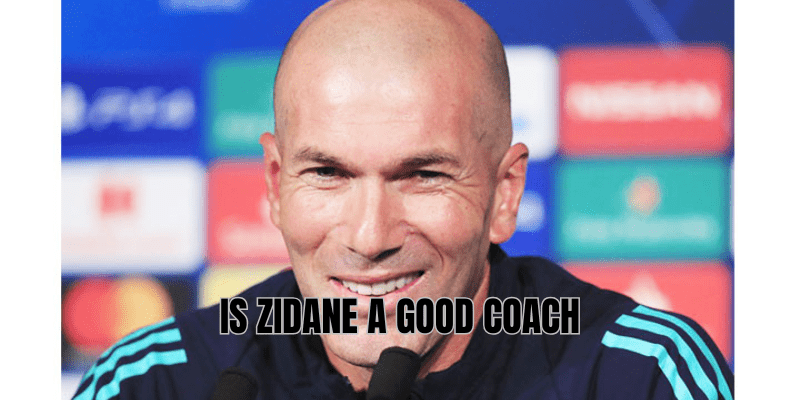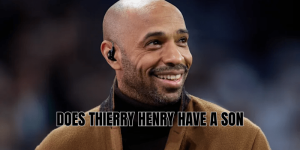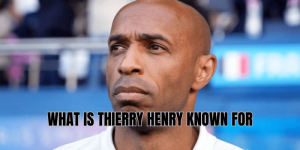One question has lingered: is Zidane a good coach? For many, the name conjures images of three straight Champions Leagues and instant success. But behind that luminous record lies a complex picture—one shaped by innate leadership, tactical ambiguity, and serendipity. In this article, TigerKick will dive deep: we’ll weigh his strengths and weaknesses, review stats and examples, compare him with peers, and ultimately give a balanced verdict.
The résumé: trophies, records, and raw metrics
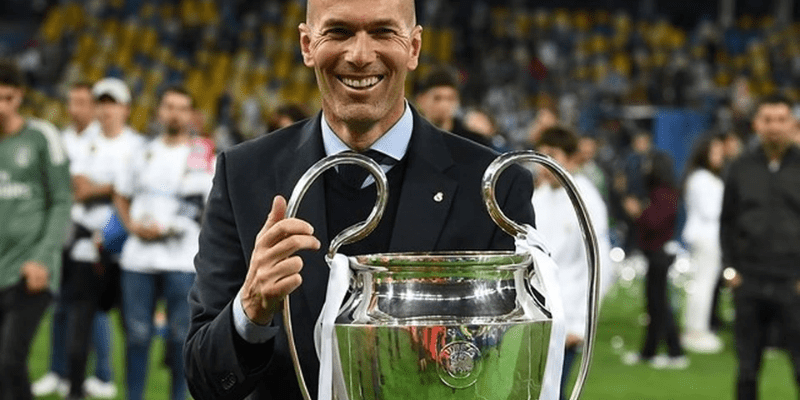
You can’t answer is Zidane a good coach without first looking at what he has achieved.
- During his two spells managing Real Madrid, Zidane collected 11 major trophies: three consecutive UEFA Champions Leagues (2016, 2017, 2018), two La Liga titles, two UEFA Su.
- His overall win percentage sits around 63 % over more than 280 matches.
- In key fixtures, he has repeatedly delivered—especially in knockout competition, where Madrid under his leadership often punched above expectations.
- His managerial career was compressed: Zidane never dragged out long rebuilds or mid-table mediocrity. He entered elite-level management late, then delivered in short, high-pressure stints.
These achievements place him among the most efficient trophy-winning managers in modern football. But raw stats tell only part of the story.
The intangible strengths: leadership, man-management, aura
One of Zidane’s most potent assets is how he handles people and personalities.
Dressing room magnet
From Luka Modrić to Karim Benzema,, Madrid’s star-studded locker room was notoriously difficult to manage. Yet Zidane consistently secured their respect and bought into his vision. He rarely let clashes spiral out of control publicly. His calm, modest style—quiet rather than bombastic—allowed him to act as a mediator and stabilizer.
Trusting players, unlocking value
Zidane often reintegrated players who had fallen out of favor or whose confidence waned. He trusted experienced veterans but also gave chances to younger players—sometimes turning underused talent into pivotal starters. His substitution patterns earned plaudits: super-subs like Lucas Vázquez or Marco Asensio often changed games once introduced.
Composure under pressure
Finals, El Clásicos, comeback matches: Zidane repeatedly showed he stays steady when the heat is highest. In the 2018 Champions League final, introducing Bale, and instill belief in tight moments is hard to quantify—but it is real.
The tactical critique: lack of identity, reactive setups
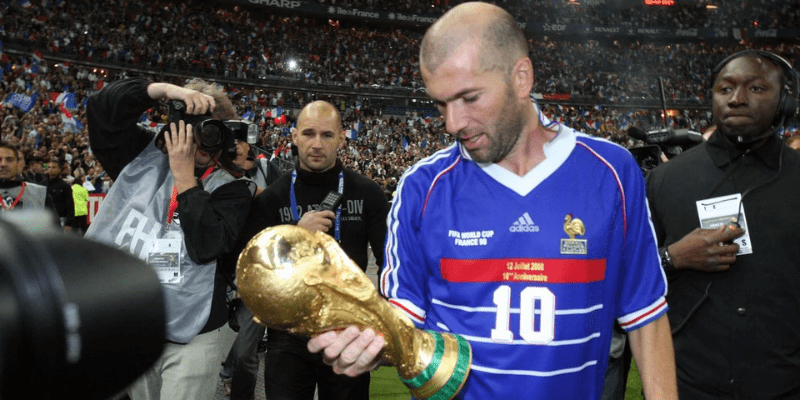
If Zidane pleases with his humanity, critics push back at his tactical limitations.
No signature system
Unlike managers who are known for pressing, counter-attacking, possession-based mantra, Zidane doesn’t appear to have a rigid blueprint. His teams have shifted between 4-3-3, 4-4-2, and various hybrid shapes depending on opponent or personnel. That flexibility is often praised, but detractors argue it’s a cloak: “he adapts because he lacks conviction in his own system.”
Reactive rather than proactive
Often, Madrid under Zidane seemed to respond to matches rather than impose themselves. Some games exposed structural fragility—if the stars misfired or opposition pressed aggressively, Madrid sometimes lacked a proactive counter. Over multiple seasons, that creates vulnerability, especially in long league campaigns or when facing novel tactical threats.
Limited experimentation
Zidane rarely ventured far. He didn’t introduce drastic tactical revolutions or build entirely new philosophies. In contrast, many top-level coaches experiment constantly, introducing novel press structures, positional rotations, or transitional patterns. Zidane’s conservatism is both safety and constraint.
Case studies: triumphs and stumbles
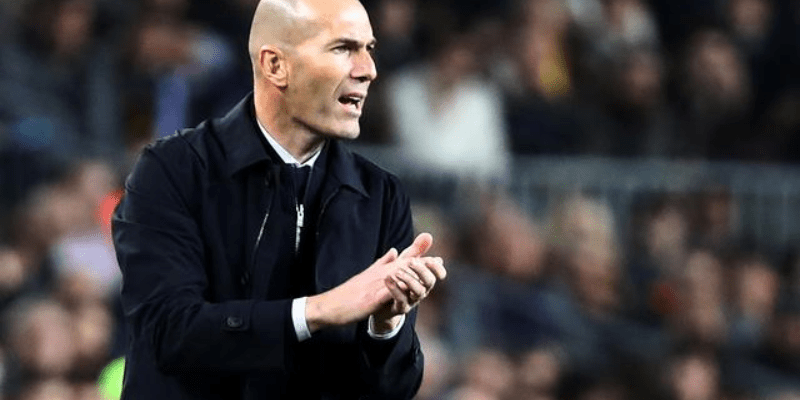
To see is Zidane a good coach in context, here are examples that swing both ways.
Triumph: Champions League comebacks
Madrid’s 2018 round-of-16 tie vs. PSG stands out. Down 1–0.
Triumph: balancing superstars
Madrid squads under Zidane were loaded with personalities—each with their own agenda, egos, and expectations. Yet Zidane maintained harmony. Cristiano Ronaldo remained motivated, Benzema thrived, the core stayed cohesive. That’s a rare feat.
Stumble: league consistency
While Madrid under Zidane was formidable in cups, the league runs had lapses. Some seasons showed dips in intensity, surprise defeats, or matches where formulaic opposition exploited Madrid’s setup. Over 38-match campaigns, tactical predictability or lack of refreshers could be exposed.
Stumble: second spell challenges
In his second term (2019–2021), Zidane inherited a more complex squad, age issues, injuries, and transitional phases. The Champions League never returned, and there were periods of inconsistency. He held the club together, yes—but critics say he managed damage control more than vision-driven growth.
Comparison with peers: where he stands
To further clarify is Zidane a good coach, comparing him against peers helps.
- Against tactically revolutionary coaches (e.g. Guardiola, Klopp), Zidane doesn’t match the same depth of style innovation or pressing complexity.
- Against “big-club stabilizers” (like Ancelotti, Mourinho in certain modes), Zidane holds his own: strong in knockout formats, competent in squad rotation, excellent in man management.
- In terms of legacy-to-tenure ratio (trophies per year), he is among the most efficient—he didn’t need a decade to amass accolades.
Thus, he is not in the avant-garde tactical elite—but he occupies a high echelon in elite coaches who win at the highest level with psychological mastery.
Context matters: why Zidane’s success is partially conditional
No coach operates in a vacuum, and Zidane benefited.
- Elite players: When you have the likes of Ronaldo, Modrić, Kroos, Ramos—you start with a baseline of quality few can match. That gives tactical room to manage rather than rebuild.
- Institutional power and resources: Real Madrid has deep pockets, high patience, and global prestige. Zidane was never starved of opportunity.
- Short tenures and high stakes: Zidane didn’t spend long rebuilding. He entered ambitious clubs where immediate expectations existed. His spells were intense but compact—a structure he thrived in.
In a lower-resourced club, with less star leverage, his limitations in tactical identity might be more exposed.
The current moment and beyond
Zidane hasn’t taken a coaching role since leaving Madrid in 2021. Yet rumors swirl: some see him as a natural successor to Didier Deschamps with the French national team. Others speculate about a comeback to elite clubs. His next project will test how much his reputation still holds beyond the Bernabéu.
If he returns, expectations will be sky-high: not just to restore, but to innovate. The world will eagerly watch to see whether he evolves tactically or leans heavily into psychological mastery and adaptability.
Final Thoughts
Is Zidane a good coach? Yes—but with important caveats. He is among the most trophy-winning, effective, and magnetic leaders in modern football, particularly in short windows. His strengths lie in reading players, instilling belief, managing personalities, and performing when the stakes are highest. But he is not a tactical revolutionary, and his lack of a signature, deeply personal system weakens his standing in more rigorous analytical comparisons.
If Zidane re-enters the fray, his success will again rest on environment, support, squad, and whether he chooses to evolve or rely on the tools that got him here. For now, his record and aura make the answer tilt toward yes—he is a good coach, perhaps not perfect, but undeniably elite.
Below, TigerKick will invite you to compare him with other coaching legends, track his next managerial move, or deep-dive into his signature matches.
